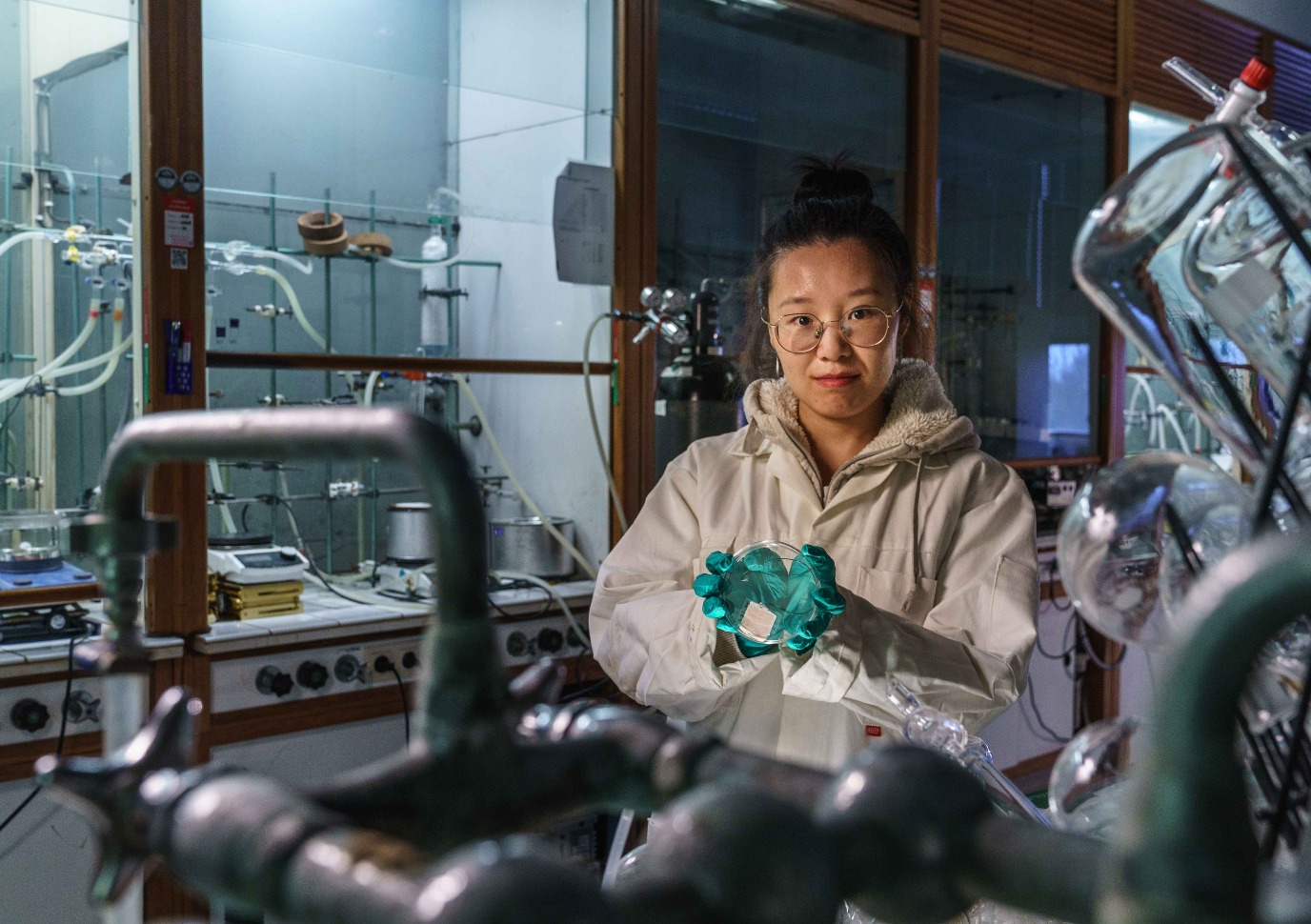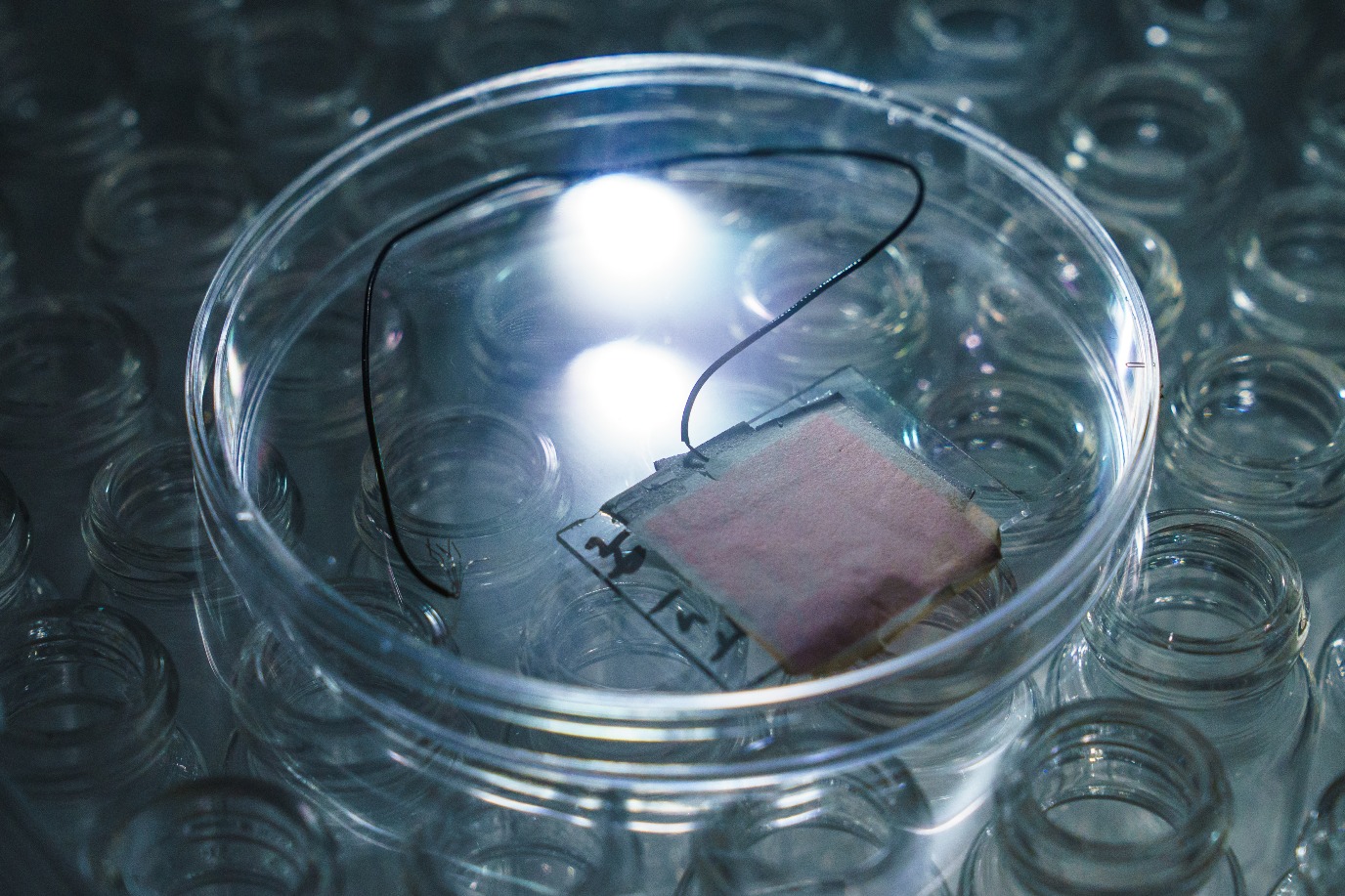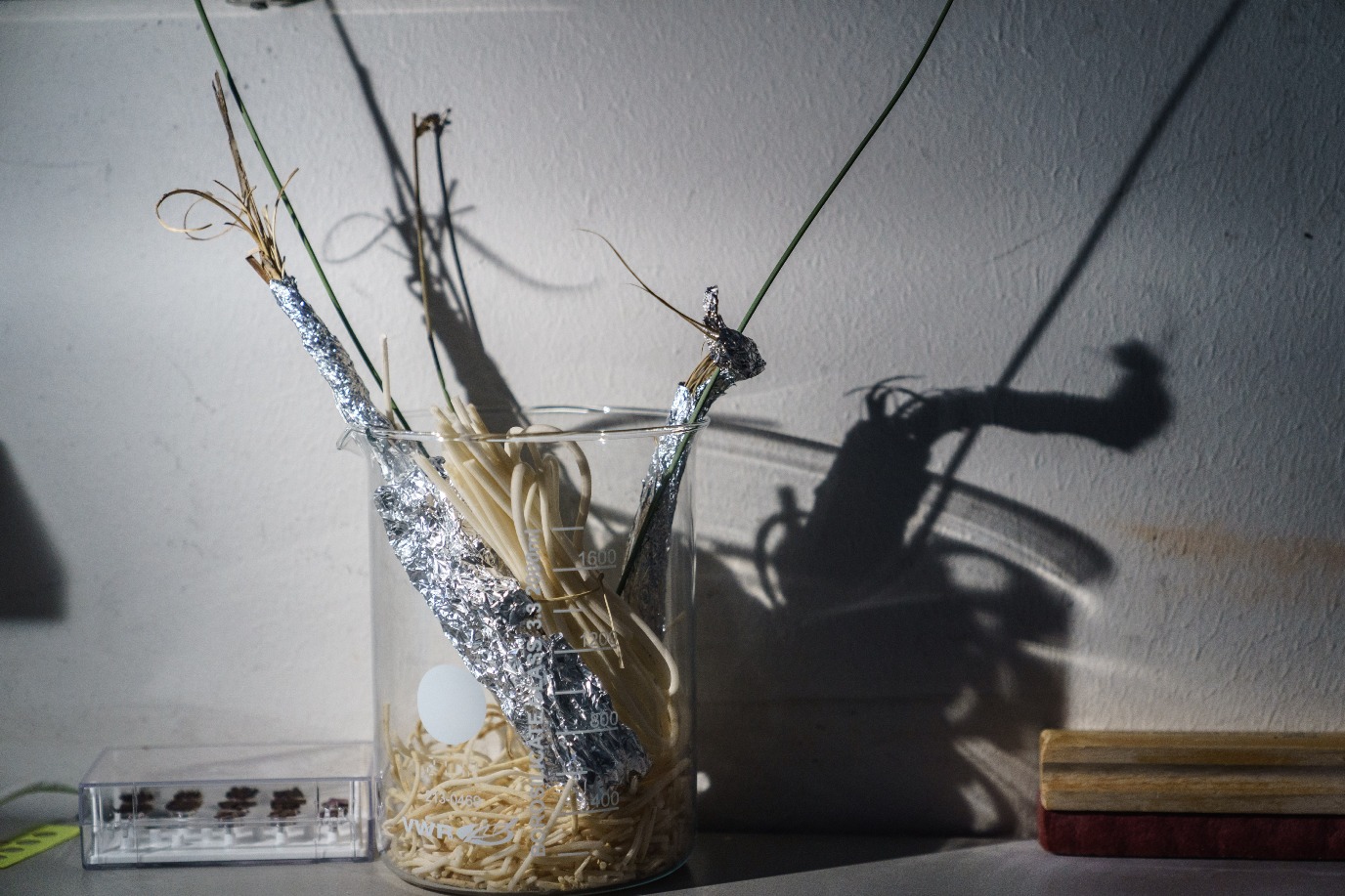Een plantaardige sensor
Promovenda Qi Chen toont een petrischaaltje met een sensor, formaat SD-kaartje, die zonder batterij beweging kan meten. Chen: ‘Deze sensor gebruikt een groene vorm van energie: hij oogst beweging, en zet die om in een elektrisch signaal.’ Om dat te kunnen doen, maakte ze slim gebruik van de natuurlijke eigenschappen van de pitrus-plant, een hardnekkig onkruid dat vooral in natte gebieden groeit.



De sensor wekt stroom op volgens hetzelfde principe dat je ’s winters een schok geeft wanneer je de deurklink vastpakt: het tribo-elektrisch effect. Een elektrische lading bouwt op door wrijving tussen twee materialen, bijvoorbeeld je schoenzolen en een tapijt. In Chens sensor wrijven bij beweging twee ruwe strips tegen elkaar aan, die zo een stroompje produceren.
Per toeval ontdekte Chen dat het materiaal van de pitrus-plant uitermate geschikt was om zulke ruwe strips van te maken. Ze werkte al met deze plant omdat het binnenste van de stengel een open, schuimachtige structuur heeft; iets dat kunstmatig moeilijk te produceren is. Op een dag morste ze wat van het mengsel met pitrus-materiaal op een stukje aluminiumfolie. ‘En ik was te lui om het op te ruimen,’ lacht Chen. De volgende dag had zich een flinterdun laagje gevormd, dat door de open structuur extra ruw was.
Twee zulke flinterdunne laagjes liggen aan de basis van deze sensor, en dat maakt de sensor dubbel groen: het ding heeft geen batterij nodig, én het materiaal zelf heeft geen intensief productieproces ondergaan. Chen: ‘De gemeente bestrijdt de pitrus-plant als onkruid, maar in ons lab is het een waardevolle grondstof.’
Tekst: FSE Science Newsroom | Charlotte Vlek
Foto's: Reyer Boxem
In Makers van de RUG belichten we elke twee weken een onderzoeker die iets concreets heeft ontwikkeld: van zelfgemaakte meetapparatuur voor wetenschappelijk onderzoek tot kleine of grote producten die ons dagelijks leven kunnen veranderen. Zo dragen RUG-onderzoekers bij aan oplossingen voor grote wetenschappelijke en maatschappelijke uitdagingen.
Techniekonderwijs en -onderzoek maken bij de RUG al decennia deel uit van een breed palet aan sterke disciplines en landelijk werken we steeds intensiever samen met de vier technische universiteiten.
Meer informatie
Qi Chen
Meer nieuws
-
17 februari 2026
De lange zoektocht naar nieuwe fysica
-
10 februari 2026
Waarom slechts een klein aantal planeten geschikt is voor leven
